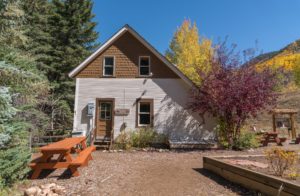
Tiny houses are better than large homes. After the boom of the McMansions, it seems building small is the latest movement. The last decade has seen an increase in minuscule, sustainable homes with all the creature comforts in a fraction of the square footage.
In some areas, such as Tokyo or São Paulo, space is at a premium, so micro-living is a necessity. For others, it’s an opportunity to be mobile or gain affordable independence. Some say, “Bigger is better,” but I believe small houses reign supreme. Beyond their adorable aesthetic, there are several practical reasons why tiny houses are better.
Affordable
The average cost of a tiny home is $30-40,000. That’s almost 13% of the median price of a single-family home (SFH), $226,800. The recommended 20% down payment for the SFH would more than cover building and personalizing your tiny home. For those interested in owning a home, a little house is an affordable option. Even if you splurge, you would still probably spend less than you would on an SFH. Some are available prefabricated, or you can customize based on your budget’s limits, insurance, and state’s zoning laws. Flexible
Flexible
The majority that I’ve seen are mobile, which offers flexibility that your standard home could never. If you’re offered your dream job across the country, you could, hypothetically, hitch your home to your vehicle and move. It may sound like you’re living in a camper, but there are a few differences. The tiny house is customized, is meant to be comfortable since it is a home, and is not intended to move frequently.
Sustainable
Generally, tiny homes are the most sustainable. Many have compost toilets, solar panel roofs, garden roofs, etc., and use upcycled or recycled materials. You will save money on heating or cooling the space from both size and energy perspectives. Additionally, if you, or your family, own the land your home is on, then you won’t need to pay parking fees or rent. Finally, a smaller home means less time and money spent on maintenance.
Clutter-free
Because of the reduced square footage, owners can’t bring things they don’t need into the house. As a partially rehabilitated packrat, I need all the help I can get to rid myself of unnecessary items. I have been steadily downsizing over the years to prepare, but I still have too much stuff. Living in a tiny home leaves no room for junk drawers and full storage closets.
I do not currently live in a tiny home, but I am fleshing out my plans. My goal is to have one made out of shipping containers. I have seen large homes built from them, but I want to reduce my footprint. I even recently convinced my sister to let me live in my container home in her backyard. Her only stipulation is that I have separate utilities, which is no problem with my eco-friendly plans.
Intrigued? Here’s a quiz to determine if tiny living is right for you.
Read More
Home Insurance Adjuster Estimate Too Low? Here’s What to Do
Tips for First-Time Home Buyers
Buying a House? A Credit Union Mortgage Might Be Best

Flanice Lewis is a DC-based financial literacy advocate, blogger, traveler and breast cancer survivor. In addition to having bought her first house at 23, she is a graduate of Howard University and The University of Virginia. You can follow her on Instagram or read her work here on critical financial.
Comments